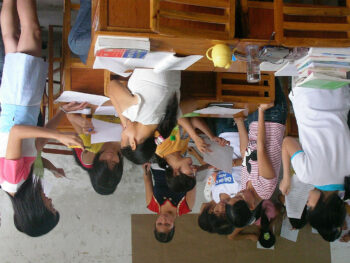
Flipped Educación de Adultos
El Flipped Learning 3.0 es un enfoque innovador para la educación de adultos que supone un cambio con respecto al modelo tradicional de aula. En este enfoque, se anima a los estudiantes a tomar el control de su propio aprendizaje utilizando la tecnología y los recursos fuera del aula para adquirir conocimientos y comprensión sobre Read More ...

Sobre Flipped Learning
El Flipped Learning fue definido como un enfoque pedagógico en 2012 por la Red de Flipped Learning Network, establecida por varios docentes. Su definición de Flipped Learning es: El enfoque pedagógico se basa en cuatro pilares (haga clic en un elemento para leer más): Espacio Flexible Cultura de Aprendizaje Contenido Intencional Educadores Profesionales Fuente: Read More ...

Multimedia e interactividad en el aprendizaje
El contenido de formación basado en multimedia e interactivo ofrece una experiencia de aprendizaje dinámica y atractiva al combinar diferentes tipos de medios, como texto, imágenes, audio y video, con elementos interactivos que permiten a los estudiantes participar activamente en el proceso de formación. Este enfoque presenta varias ventajas y aporta un valor añadido a Read More ...

